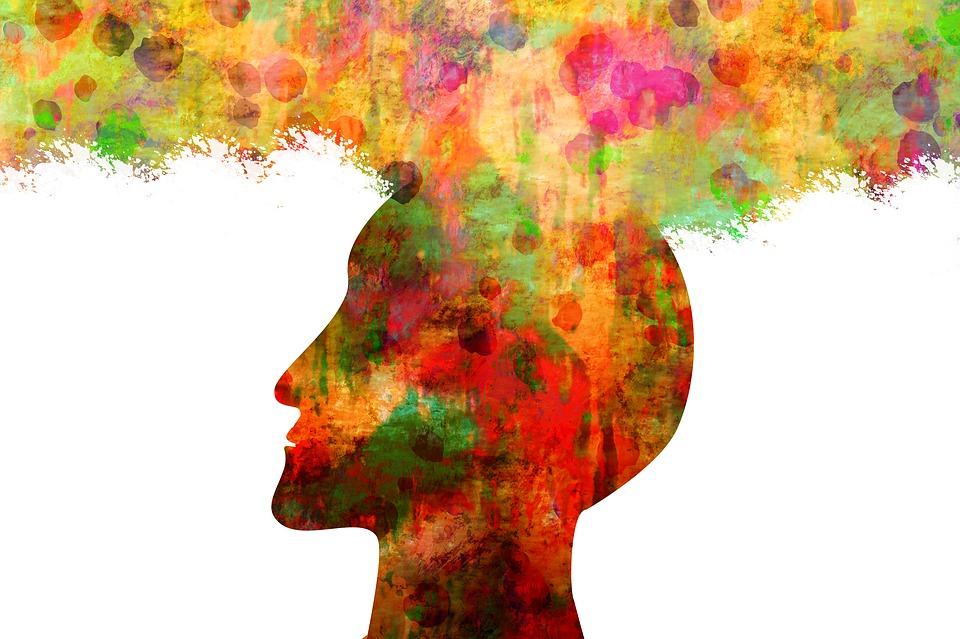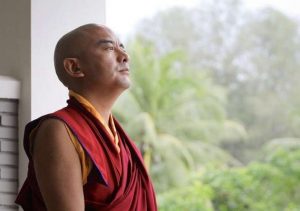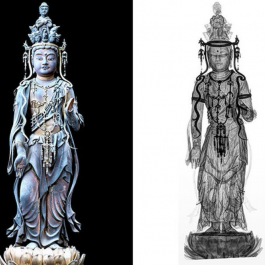
Buddhism today has become almost synonymous with mindfulness practices. Contemporary research into the effects on the brain of mindfulness and meditation has proven that there are real physical and psychological benefits. This is, of course, aside from any spiritual virtues meditation may offer.
Triggering my thoughts on this subject was my recent review of a book by the eminently qualified Prof. Robert Rosenbaum titled That Is Not Your Mind!. Anyone who knows me or who has read my articles for BDG will be fully aware of my interest in neurology. Prof. Rosenbaum’s book focuses on the Surangama Sutra through the eyes of a contemporary Zen practitioner, neurotherapist, and human being, and takes us into disciplines including phenomenology, epistemology, metaphysics, psychology and the brain, and practical applications in our daily lives.
That Is Not Your Mind! is far more existential and philosophical than this essay, but thoughts about what it means to be normal or to have a normal brain started ruminating in my own brain—particularly in the everyday capacity of a waking enlightened life. This book also had me questioning things—things that I invite you to question. At one point, some deeply challenging philosophical questions asked of Shakyamuni Buddha seemed to become so challenging that he informs his disciples that it needs to be left behind.1 Yet, life doesn’t always give us this option. Is it acceptable to shelve difficult things when we don’t have the answers? What if those challenging things are troubled teenagers, a precarious job, an unhappy relationship?
Prof. Rosenbaum also cited an incident concerning a village of hungry people who had sworn to uphold a vow not to kill. The villagers approached a stranger who was not bound by the vow, and asked them to end the life of a creature who was already suffering. But once the animal was slain, all of the villagers partook in feasting on the animal’s flesh.
Is it acceptable to keep one’s own hands clean at the expense of someone else having blood on theirs? How does karma work here? How many animal lovers are there who would vow never to harm, let alone kill an animal, yet close their eyes, ears, and hearts to the suffering incurred by beings who die in slaughterhouses for the sake of a meal? There is no “just meat” without a creature losing its body, it’s life. How often do we justify such actions to make ourselves feel better?
I should emphasize here that I am not a neurologist. The nearest qualification I have is owning a brain. And when I say own, I do not wish to imply that I have actual ownership or governance of said biological matter held within my cranium. Sure, it is a part of me biologically, and it is a composite and repository of my life’s worth of programming up to this point, but it will do its own thing the second I’m not looking. My brain has moments when it behaves like a spoiled brat and moments when it becomes a scornful parent. There are moments when there’s mental noise akin to a raging waterfall of information, and moments when my brain seems to go AWOL, even MIA, as it becomes quietly content gazing into thin air—utterly devoid of cognition. There are even moments when trying to heave up any thought of value is akin to swimming in custard or mustering the effort to move off of the sofa after hours of trash TV and junk snacks. There are times of dark destitution, and on through to baby-brain and puppy-brain silliness. Talk about the monkey mind!
Perhaps I simply need to meditate more? However, meditation is the perfect time for my brain to become busy. This is, of course, part of the training and a point of meditation practice. We train our minds so that we learn not to become attached to our thoughts. But for this, we need to calibrate our views, motivations, and habits, which are like a sackful of rocks that we become accustomed to carrying around. To change our reality, we need to set the sack down, open it wide, and see the rocks within for what they are. When we reach this point, we have the choice of what we do next: close the sack again and continue on as before? Find some new rocks and start again? Place the rocks in the river and leave the bag behind? You get the idea.
Speaking of the dual nature of the mind, have you experienced the upside to the inner dialogue that tries to counter-move a particular negative brain state? It’s a kind of inner pep-talk or inner redirect that occurs when you become aware that your brain is taking a stroll down the wrong side of town. Buddhism often speaks of duality, and most of us are aware of the dual aspects of the brain—the left and right hemispheres. It is a curious experience when we sincerely appreciate the phenomenon of hearing an inner voice that argues against a current mindset, or contemplate the fact that we can desire to override a behavioral tendency. For example, knowing that you fear flying, you might choose to reprogram your brain so it will do what you want, in this case fly without fear. The same voice might remind you that you are, in fact, worthy when you’re otherwise drowning. Who is the you that makes these decisions? The you that has autonomy over the other you?
Meditation, especially clear-mind meditations, reminds us that the crystalline blue sky is often obscured by clouds. The clouds (like the aforementioned rocks) are, of course, the programming that the brain undergoes during the experience of living, while the clear sky is the unfettered mind of the essential you. Most of the clouds are formed in early childhood, making it extremely difficult to really know what is you, versus what has been learned and hardwired deep within our brain. Is your favorite color your favorite because you are in harmony with the frequency of that color at that moment? Or is it because it was the color of the dress your mother wore on a day when you were happy? Do you love cooking because you have discovered the joy of sharing food? Or is it because your family always cooked around you as a youngster?
Simple questions like these can help to determine what your truth is and what is programming. Although one does not necessarily preclude the other, awareness of self is the foundation to self-awareness: ontology opens the door to the epistemological conversation.
It is worth noting here that meditation alone can’t resolve every neurological problem or behavioral trait, so it is essential to be gentle with ourselves. It is only after many frustrating years of meditation that many practitioners may realize that there are other factors at play.
Sometimes, some form of intervention can be beneficial because the brain’s “wiring” may be compromised or because we carry unhealed traumas, which come to the surface gasping for air when we least expect them. And sometimes we can address specific imbalances that create “unnecessary clouds” ourselves.

Chronic everyday stress creates cortisol, which induces inflammation, which plays havoc with our physical systems and, inevitably, with our emotional well-being. All too often, our diets, heavy in processed foods, add to the inflammation and toxicity. For example, refined sugar is a major factor poisoning the brain, and processed foods often lack critical ingredients that our brain needs to function healthily. For example, many of us experience shortfalls of dopamine, serotonin, and B vitamins. We may benefit from a myriad of herbs and natural supplements, which can cleanse our bodies of toxic heavy metals and molds,2 and certain species of mushrooms can help us grow new synaptic connections. The list isn’t infinite, but the healthful resources that nature has provided us is impressive. These are just examples of actions that we can take into our own hands at any given moment, and I urge you to research the benefits of brain foods and nootropics.
Of course, the brain isn’t merely a supplement-hungry lump of meat; it is an interconnected, formless, timeless, and ultimately ineffable seat of the mind and of consciousness. But while our realities can be viewed as nothing but fluctuations of energy, here and not here, bills still need paid. And while our stress may not have evaporated like a cloud, meditation may offer insights into how we may manage our daily concerns more efficiently and more clearly.
It seems that the Buddha’s Noble Eightfold Path is as much a map to what we may describe as the law of assumption and attraction. What would happen if you dropped the sack of rocks that are the unquestioned thoughts and programming which have defined your personality over the years? What would happen if you redefine who you are, and take the required action?
Don’t be afraid of becoming yourself.
1 “. . . This is a teaching that must be left behind, and the leaving behind, too, must be left behind . . . (This is) the Dharma that transcends idle speculation.” (Rosenbaum 113)
2 Many homes have chronic mold issues that can dramatically affect the mind, leading some to extreme measures such as suicide.
References
Rosenbaum, Robert. 2022. That Is Not Your Mind! Zen Reflections on the Surangama Sutra. Boulder, CO: Shambhala Publications.
Related features from BDG
Book Review: That Is Not Your Mind! Zen Reflections on the Surangama Sutra
Imagining the Omnipresent, Liminal OM, Part 1
What You Think, You Become …













